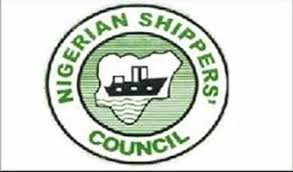Even as the heat generated by the proposed registration of the port service providers by the Nigerian Shippers’ Council (NSC) continued unabated, the Lagos Chamber of Commerce and Industry (LCCI) has justified the move by Shippers’ Council saying that a look at all regulatory agencies will reveal that they charge some fees.
The Director-General of LCCI, Mr. Muda Yusuf who made this disclosure in an interview with our correspondent in Lagos yesterday however warned that effort should be geared towards ensuring that the fee so charged was reasonable.
While contending that the Central Bank of Nigeria (CBN), the Securities and Exchange Commission (SEC), National Agency for Food Drug Administration and Control (NAFDAC) among others charge some fee, he pointed out that what was important was that the fees they charge must be reasonable and must be something that businesses could cope with given the kind of businesses that they do, their capacity as well as the kind of profits that they were making.
He said,” So, we cannot wish away completely that there should be no charges imposed because it is a regulatory institution. We are concerned because it is a new regulatory institution, that is why we are feeling this way but we need to look at the totality of charges in the industry so that we don’t have duplication of charges because I know that CRFFN is also imposing charges, Shippers’ Council is now imposing charges. So, all those duplications will have to be removed and this we can do through engagement with the Shippers’ Council”.
On his part, the Chairman, Research and International Liaison of the Council for the Regulation of Freight Forwarding in Nigeria (CRFFN), Chief Increase Uche posited that contrary to claims in some quarters, there was no clash of interest or an overlap of function between the CRFFN and the Shippers’ Council with regards to the proposed registration of port service providers.
Uche explained that the role of CRFFN was to regulate and control individuals, companies and associations engaged in the freight forwarding practice while the Shippers’ Council role in relation to the registration, as the economic regulator of the port industry was for it to know those that it was regulating hence it needed to register them.
He recalled that regulation establishing it empowers it to carry out registration adding that there was no agency or parastatals of government that was charged with the responsibility of regulating certain service providers or players in an industry that do not profile them and that in the course of that profiling, registration and accreditation would take place and a fee must be attached.
“So, it depends on the scope of operation of a company, if you know that you have not gotten to the level in which you can pay some of those fees, then you choose the areas you want to specialize. Like myself now, two years ago, I didn’t register as a shipping company, that is to say, if any issue has to come from that area, I would avoid it but if you want to go on to interface with agencies of government like the Shippers’ Council that is the economic regulator, I don’t see anything bad for you to pay a stipulated fee for them to recognize and accredit you once you are operating at the port.
“The payment and that regulation will enable them create a conducive regulatory environment. So, I don’t see any overlap between what the Shippers’ Council is doing and the role CRFFN is playing and off course if you are a professional like myself, some of us belong to so many international bodies, we registered with so many professional bodies. So, in that wise, there is always a fee you have to pay.
“So, it is not something new, it is not something unusual. There is no need dragging CRFFN into it because our own operation is quite different with what is going on. Our own is if you want to operate as a registered freight forwarder in Nigeria here, the provision of our Act is very clear.
There are some roles which the Shippers’ Council plays which the CRFFN doesn’t play. If you look at the Cargo Defense Fund, there are areas where they protect shippers, we don’t do that. So, you look at the different laws establishing those agencies, look at what the objectives are, what you intend to benefit from paying that fee and belonging to that very organization so that when a case in terms of where you have to minimize your liability comes, they have to come in to assist”, he stated.
Send your news, press releases/articles to augustinenwadinamuo@yahoo.com. Also, follow us on Twitter @ptreporters and on Facebook on facebook.com/primetimereporters or call the editor on 07030661526, 08053908817.

